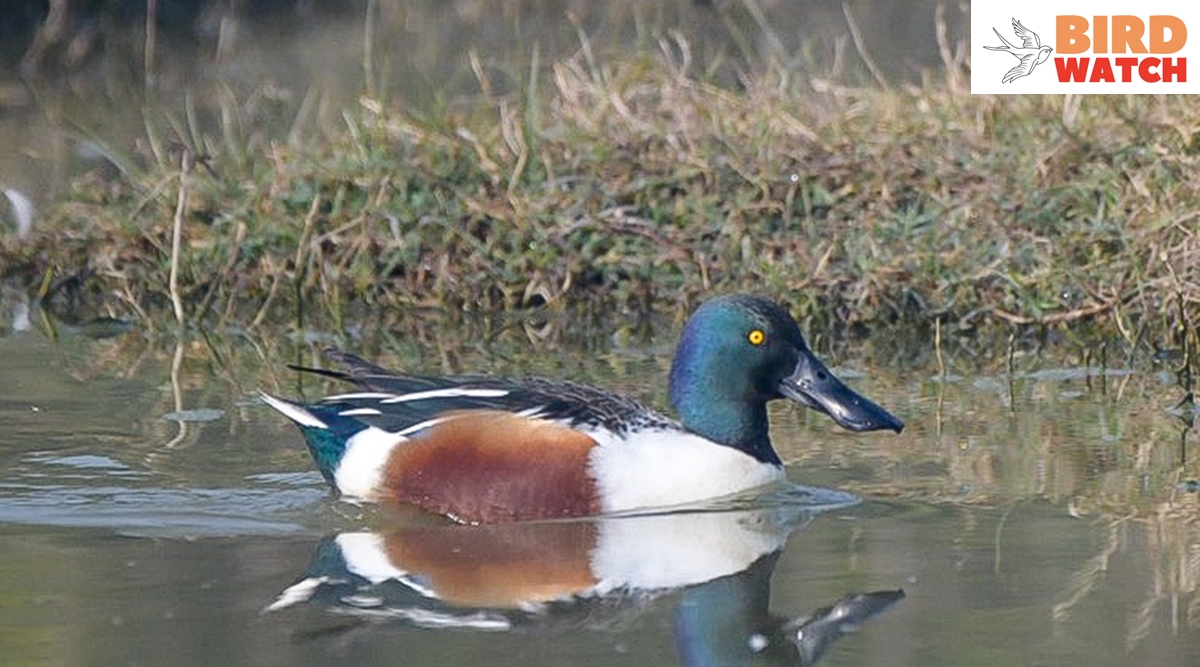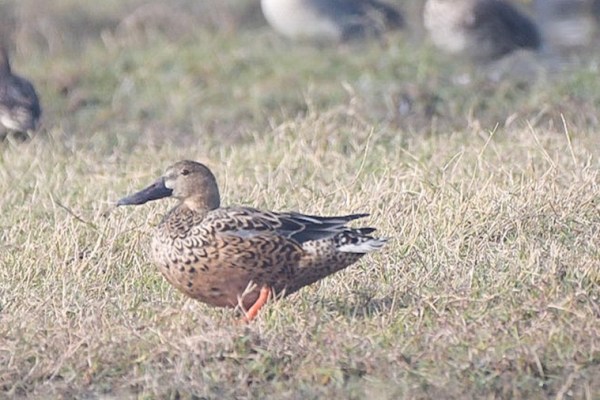Updated: February 2, 2022 2:41:36 pm
 Several water bodies situated in and around Chandigarh are the favourite destinations of Northern Shovelers.
Several water bodies situated in and around Chandigarh are the favourite destinations of Northern Shovelers. The Northern Shoveler, spatula clypteata, is a 48 cm bird with a wingspan of 76 cm and a falling duck whose numbers have increased unlike many other migratory birds.
Its distinctive broad spatula-shaped bill has lamellae or a fine comb like mesh along the sides of the bill and they wave their bill from side to side to sieve the small invertebrates in the water and muddy embankments of shallow freshwater wetlands (ponds, lakes). The male has an iridescent green head while the female is dull brown.
 The male Northern Shoveler has an iridescent green head while the female is dull brown.
The male Northern Shoveler has an iridescent green head while the female is dull brown. Several water bodies situated in and around Chandigarh are the favourite destinations of this species. However, although the numbers are rising, strikingly, the number of this species like others that prefer shallow water bodies are decreasing at Sukhna Lake, where the water level is usually high for the last couple of years.
Many Northern Shovelers migrate from Europe and Central Asia to warmer climes in the winter and then return northwards after the winter is over. These beautiful creatures are sensitive to the weather and instinctively know it’s time to move when the food supply starts dwindling and the weather changes. This is when they take off for more salubrious tropical lands.
Northern Shovelers fly at 65 km per hour and most fly at 300-600 metre (1,000-2,000 feet) altitude but sometimes may be found at 2,000 metre or above too. Most of these ducks have waterproof plumage and a fat insulated body. They build nests on floating reed beds or in between reeds. They lay between 7-12 eggs which are incubated by the female.
Many a time large village ponds receive these peripatetic travellers as they fly onto larger wetlands. As these ducks prefer shallow waters which are less than 6 metre deep with algae and plants, they need these areas where they can find food and shrubs to rest during the day time. Around Chandigarh, they can be seen in Mote Majra village and Sukhna lake and Siswan.
The Bombay Natural History Society has been tagging many species of the migratory birds in an international collaboration to identify breeding sites, stopover sites and wintering sites.
- The Indian Express website has been rated GREEN for its credibility and trustworthiness by Newsguard, a global service that rates news sources for their journalistic standards.

